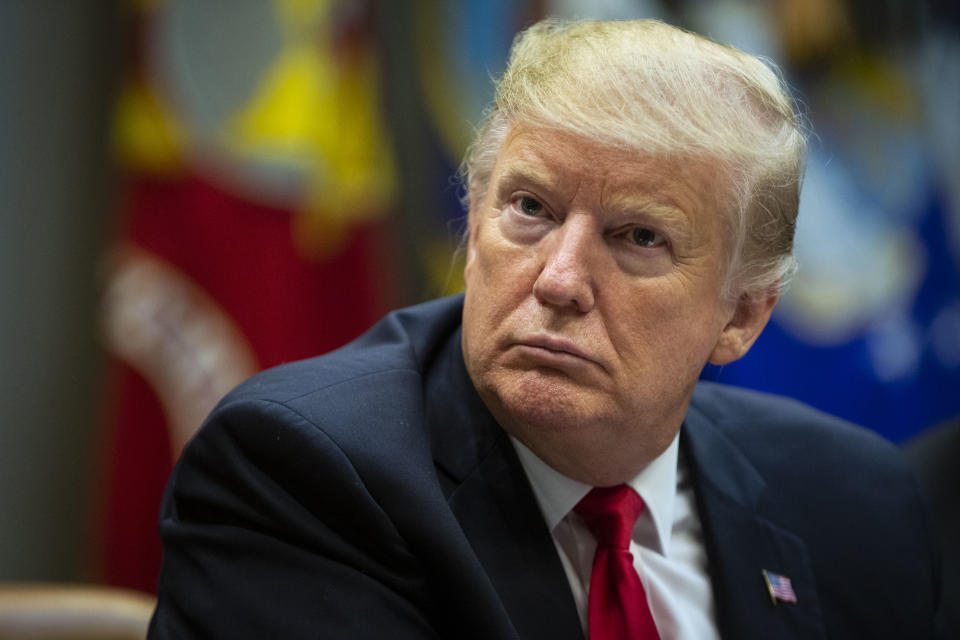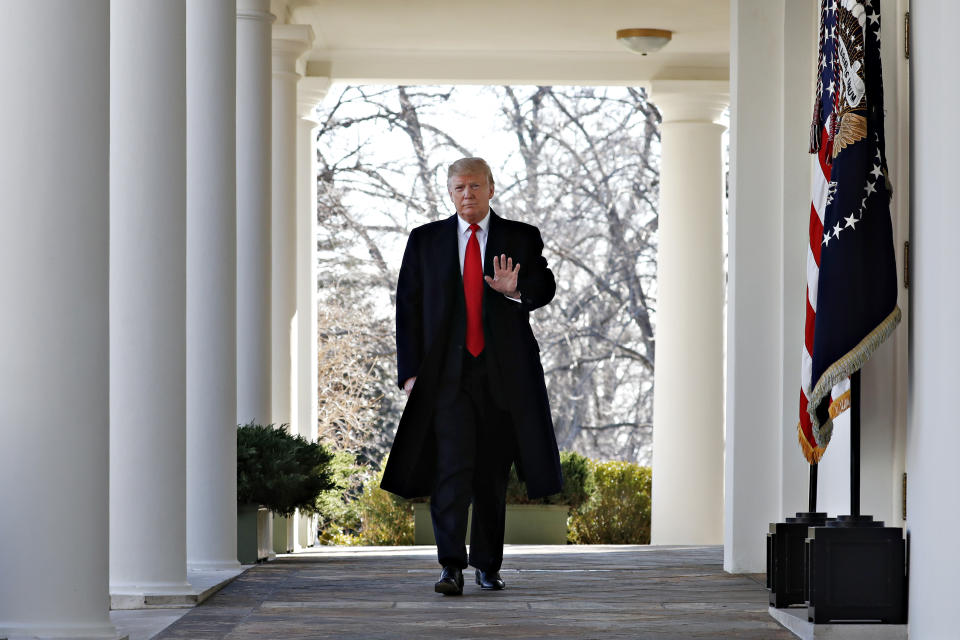Trump, sounding off on climate change, loses an argument to actual climatologists — government ones
As exceptionally cold air bore down on the Midwest Tuesday, President Trump took the opportunity, as he has before, to advertise his ill-informed speculation that cold weather disproves the fact of climate change.
“In the beautiful Midwest, windchill temperatures are reaching minus 60 degrees, the coldest ever recorded,” the president tweeted Monday night. “In coming days, expected to get even colder. People can’t last outside even for minutes. What the hell is going on with Global Waming [sic]? Please come back fast, we need you!”

Global warming, of course, hasn’t gone anywhere. Scientists say this week’s so-called polar vortex is affecting the United States because a sudden jolt of warm air in the Arctic last month moved part of the icy air mass south.
“Where the polar vortex goes, so goes the cold air,” Judah Cohen, a winter storm expert for Atmospheric and Environmental Research, told the Associated Press. There’s only so much cold air to go around, and some climatologists suspect that global warming is actually contributing to instability in the jet stream, which has brought extreme winter weather to the continental United States in the last decade.

On Tuesday, temperatures from the Dakotas to Minnesota dropped as low as minus 27 degrees, with wind chills as cold as minus 59. On Wednesday, the high temperature in Chicago is predicted to be minus 12 degrees, which would set a record for the coldest high temperature ever recorded in the Windy City.
The forecast for Fairbanks, Alaska, was for a high of 12 above zero.
“Chicago Will Be Colder Than Mount Everest, Antarctica, And Siberia On Wednesday,” blared a chyron on CBS-2 Chicago.
While Trump may not understand how global warming can lead to extreme cold, members of his own government made a point of reminding Americans of just that Tuesday.
The National Oceanic and Atmospheric Administration’s Twitter feed appeared to be reacting directly to Trump’s weather commentary when it tweeted a message dispelling a myth about winter storms.
Winter storms don't prove that global warming isn't happening. https://t.co/LDqfq4JH9n pic.twitter.com/ndmLD637Cb
— NOAA Climate.gov (@NOAAClimate) January 29, 2019
But a spokeswoman for NOAA denied that the agency’s tweet was a response to Trump.
“With the blast of severe winter weather affecting the U.S., we often get asked about the relationship between cold weather and climate change. We routinely put this story out at these times,” spokeswoman Monica Allen told The Hill. “Our scientists weren’t responding to a tweet.”
In testimony before the Senate Intelligence Committee Tuesday, Director of National Intelligence Dan Coats warned that climate change remains a national security threat.
“Global environmental and ecological degradation, as well as climate change, are likely to fuel competition for resources, economic distress, and social discontent through 2019 and beyond,” Coats said in the U.S. Intelligence Community’s annual “Worldwide Threat Assessment” report. “Climate hazards such as extreme weather, higher temperatures, droughts, floods, wildfires, storms, sea level rise, soil degradation, and acidifying oceans are intensifying, threatening infrastructure, health, and water and food security.
Coats added: “Extreme weather events, many worsened by accelerating sea level rise, will particularly affect urban coastal areas in South Asia, Southeast Asia, and the Western Hemisphere. Damage to communication, energy, and transportation infrastructure could affect low-lying military bases, inflict economic costs, and cause human displacement and loss of life.”
___
Read more from Yahoo News:



